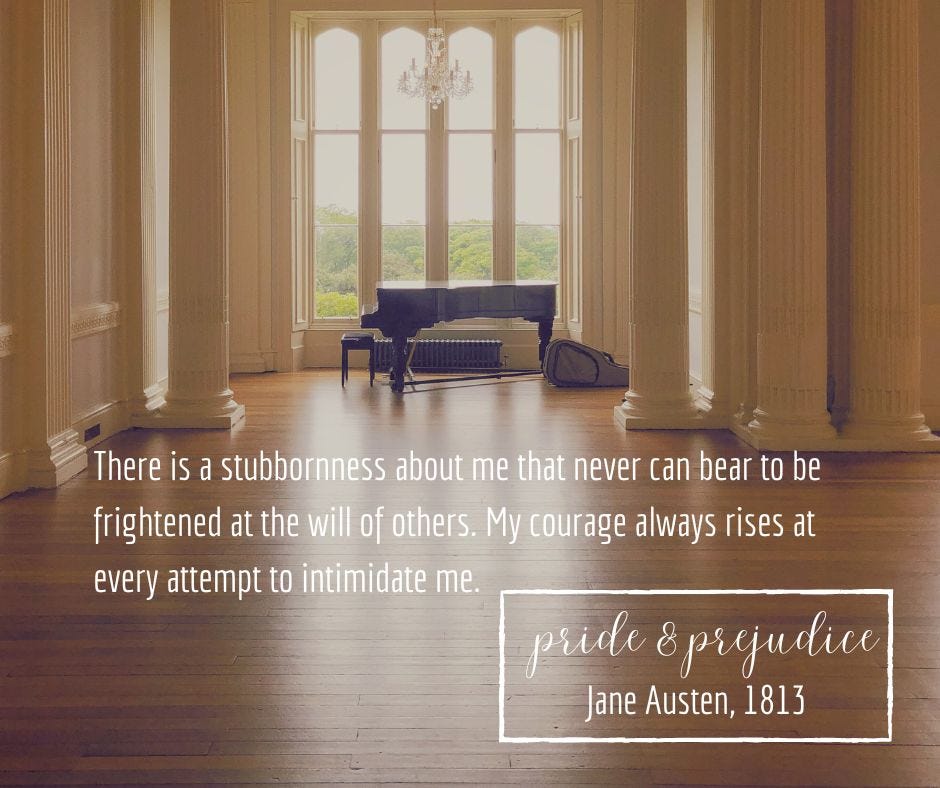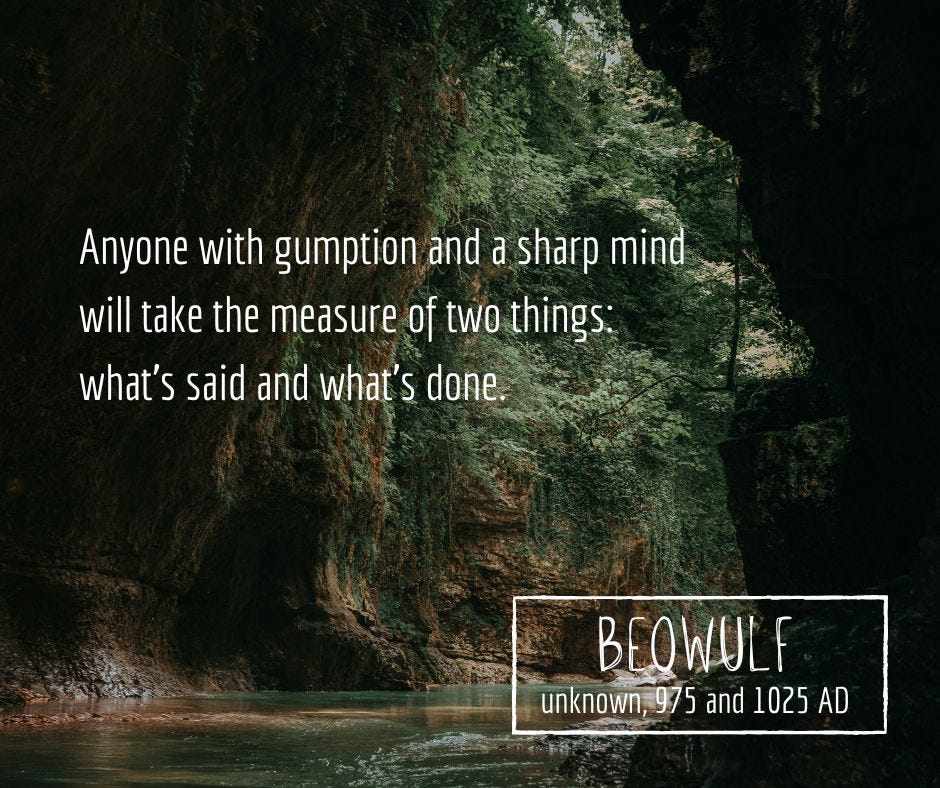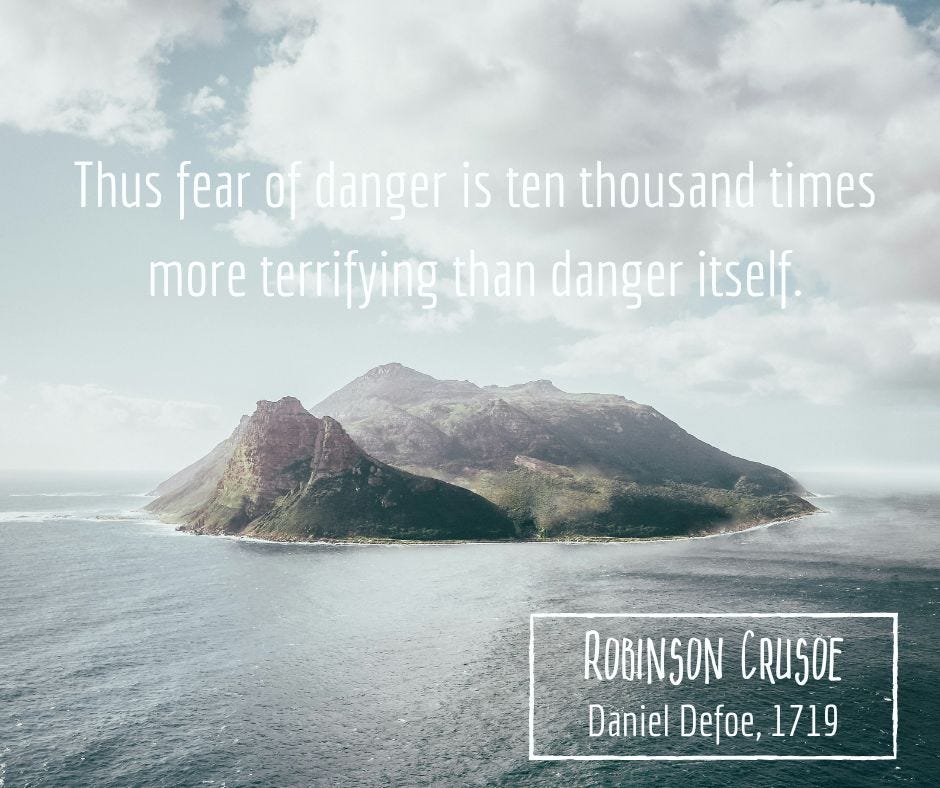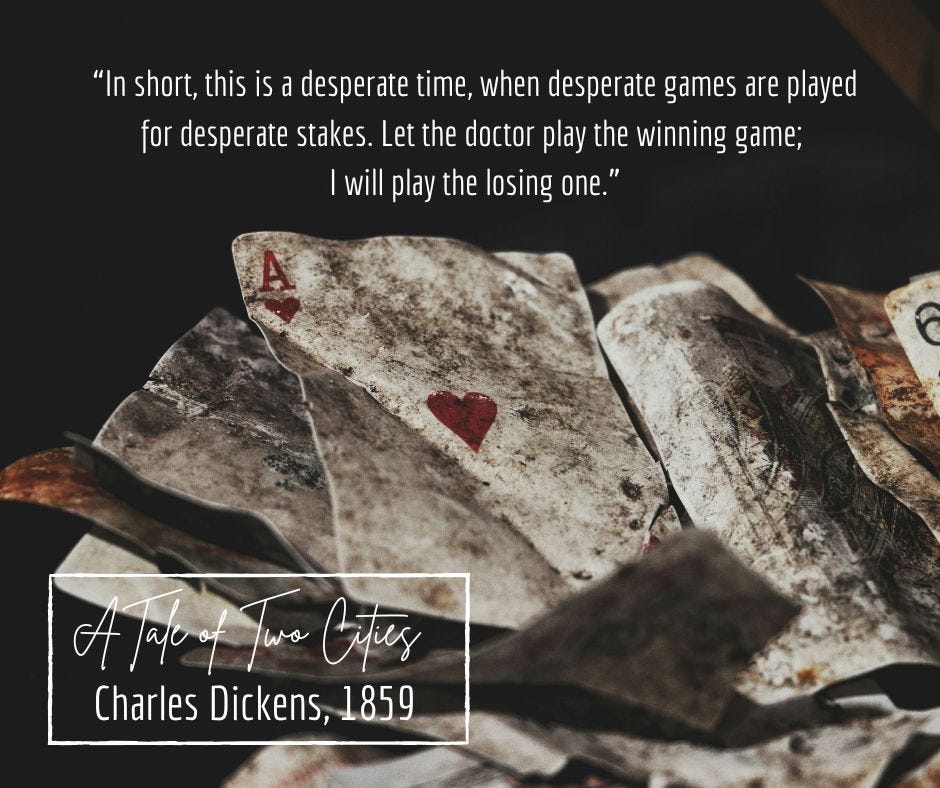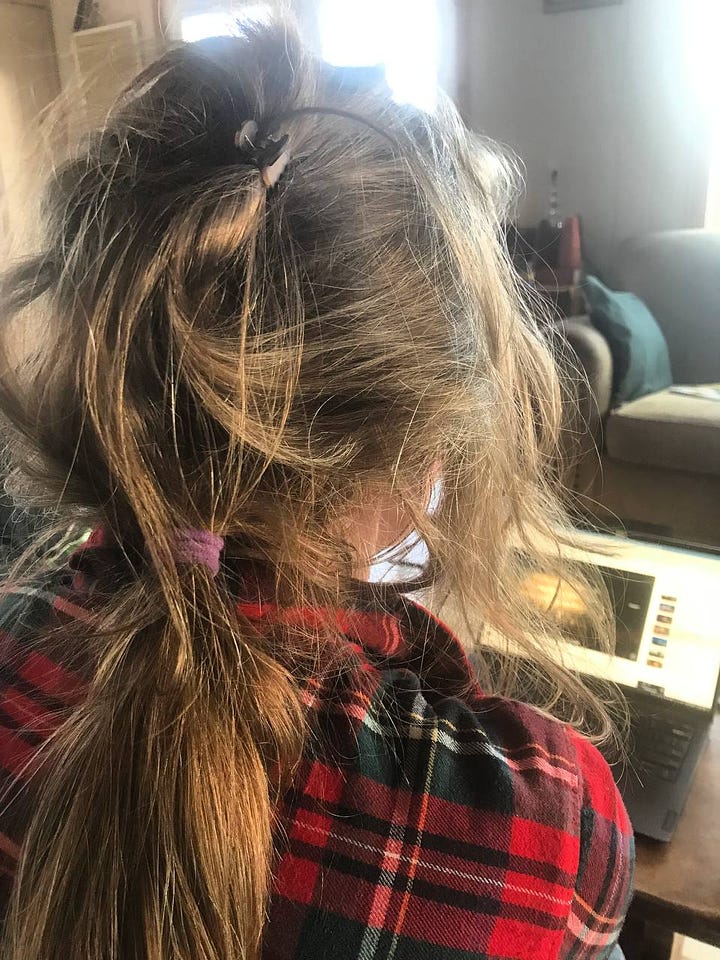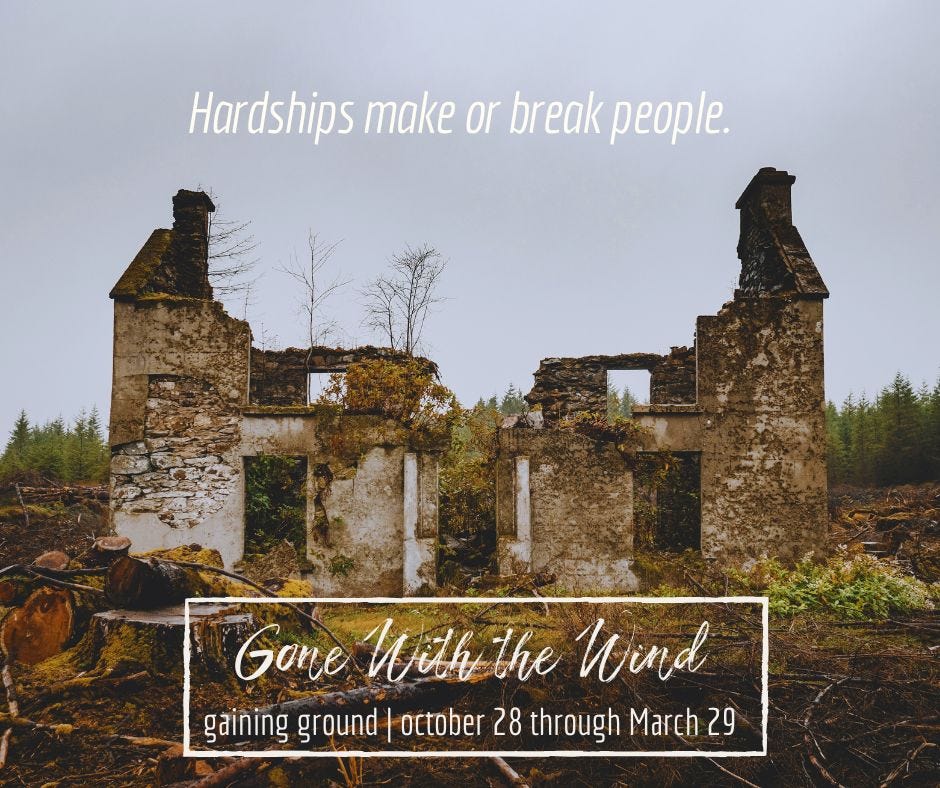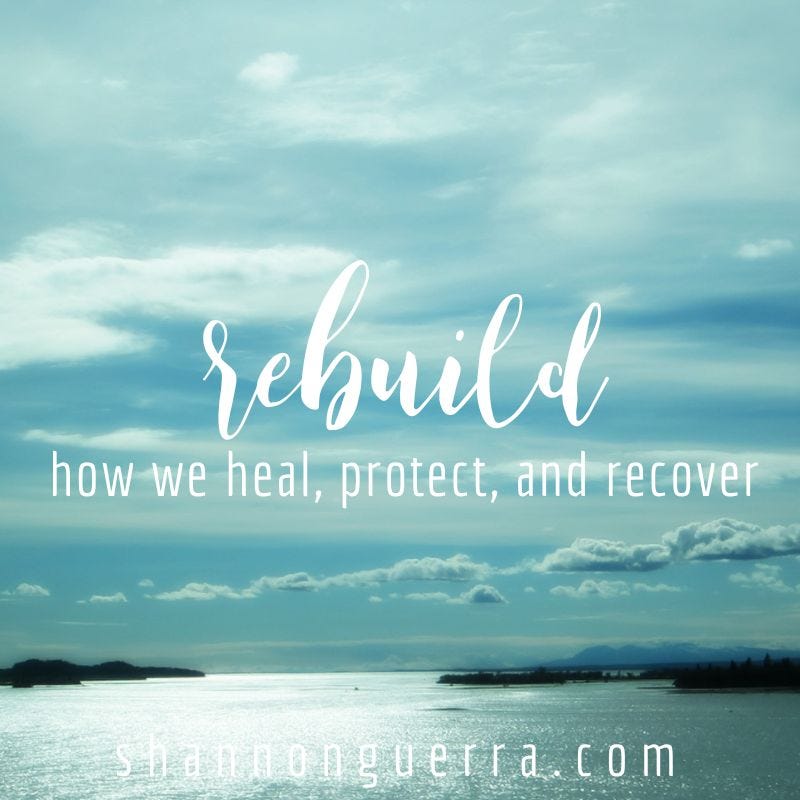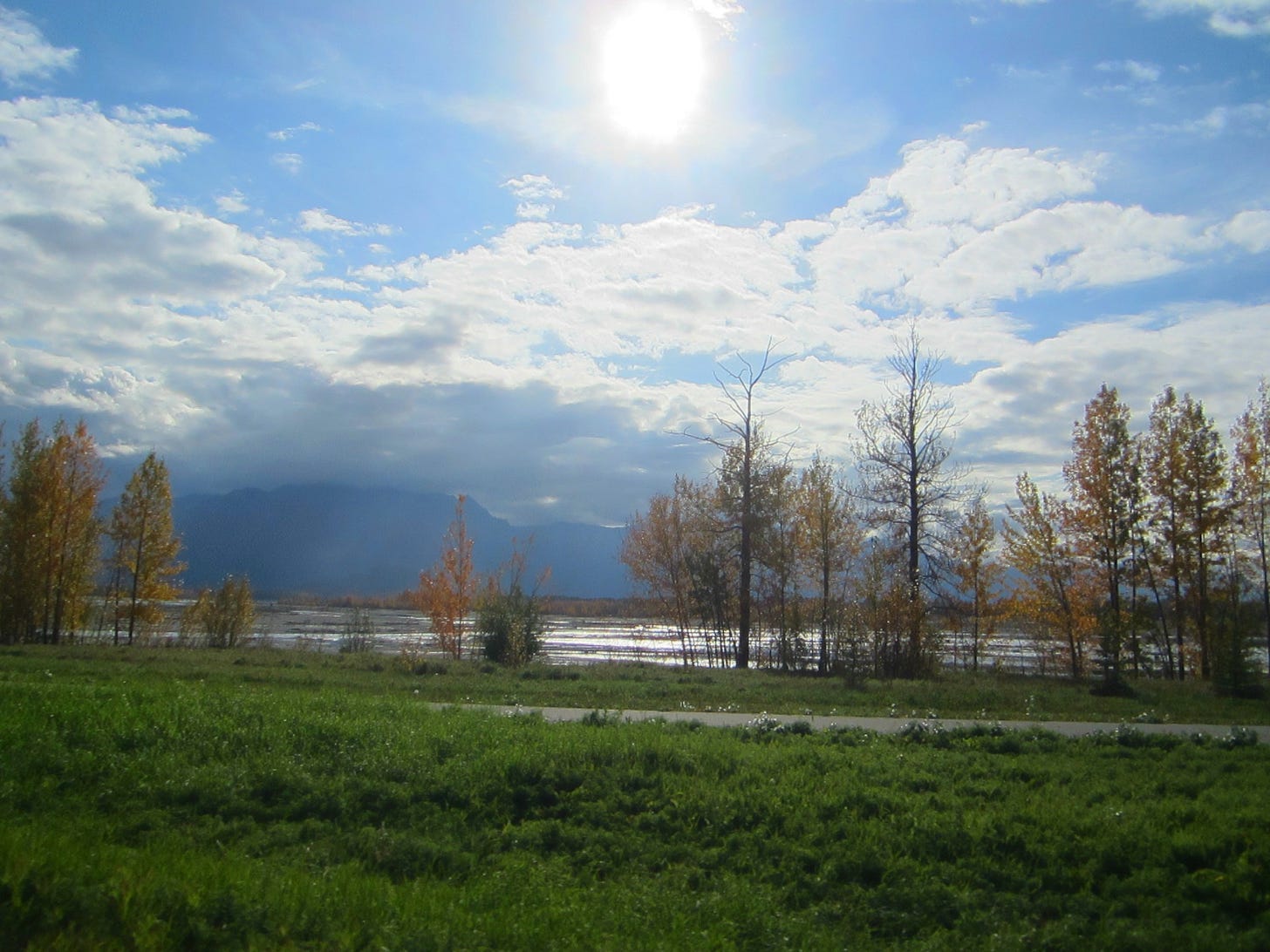Like many of you, we’ve felt relief and encouragement over the last week or so of events…on the national scale, at least. At the state level, Alaska’s elections are still a dumpster fire of delay and obvious corruption. And we’re not alone. *friendly wave and fist bump to Arizona*
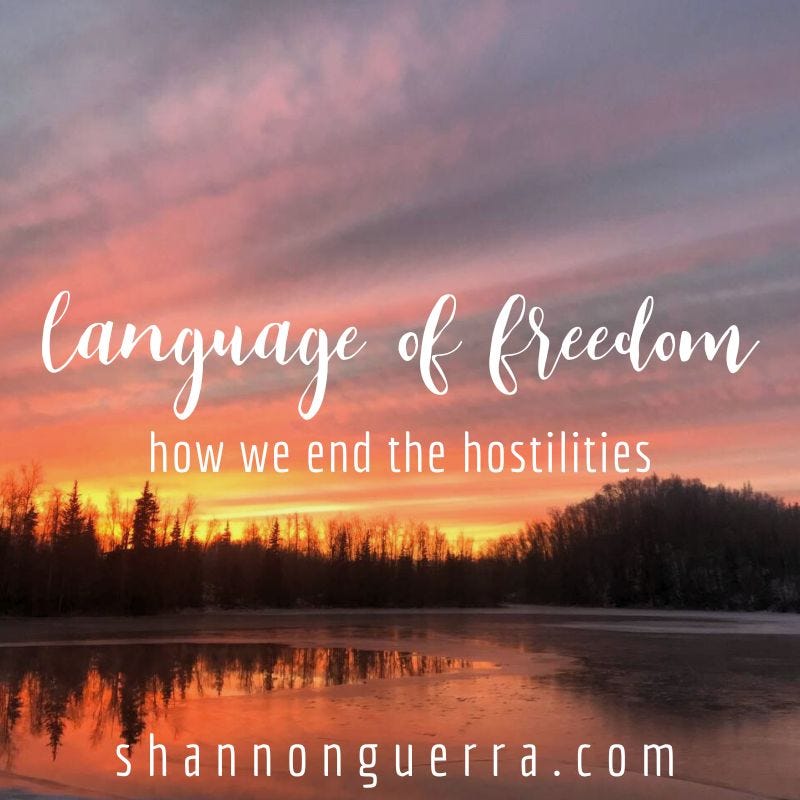
So it’s a relief, but it’s not over. And the following day, when nationwide results were confirmed, Vin said, “It’s like we’ve made it through Dunkirk, or Brooklyn Heights, or the Battle of Antietam.”
I looked at him and shook my head. He’s a nerd who’s read books on all the major wars and lots of the minor ones, but history isn’t my wheelhouse.
I have, however, read The Lord of the Rings…five times.
“Tell me in a language I understand,” I said. “You mean it’s like after the battle of Helm’s Deep, but Pelennor Fields and the Black Gate are still ahead.”
“Exactly.”
See? It helps to have a common language.
So we’ve won a really important battle, but not the whole war. The work is just beginning. All the cliches.
Because even when you get the results you want in an election, it’s not the end of the fight.
Even if four years brings amazing promises fulfilled, it doesn’t do much good if at the end of them we don’t have a culture that values life and truth, because it will swing back again into another morph of madness, trying to legislate and control lives rather than maintaining minimal government and protecting freedom.
At the root of it, the battle for freedom takes place in hearts – because hearts that don’t value purity, sanity, wisdom, and wholeness will never be free, and they will never really care about the freedom of others, either.
“This country cannot afford to be materially rich and spiritually poor.”
– JFK (January 14, 1963, State of the Union Address)
Great men make good times; good times create weak men; weak men create hard times; hard times create great men. There are exceptions, of course. Patterns are important because they can serve as warnings to watch for, but they are not destiny.
If we want to break the cycle, we have to stop creating weak men, and I don’t think the way to do that is to intentionally shoot ourselves in the foot by creating failure and hard times.
We have to create Kingdom culture, deep and wide.
But their minds were hardened. For to this day, when they read the old covenant, that same veil remains unlifted, because only through Christ is it taken away. Yes, to this day whenever Moses is read a veil lies over their hearts.
But when one turns to the Lord, the veil is removed. Now the Lord is the Spirit, and where the Spirit of the Lord is, there is freedom.
– 2 Corinthians 3:14-17
We move wide, laterally and in the present, by healing the generations who don’t really know who they are, who are fear-filled and enraged as a result of their own ignorance, deceived by everything spoon-fed to them in the media.
Many of them have had just enough religion and churchianity to swing far to one side, hating God and anything that smacks of Him, or to the other side, checking off boxes and claiming to be Christian without bearing any fruit that indicates a relationship with Jesus. Some of them film their mental breakdowns on TikTok (what level of broken narcissism thinks people will be interested in that?) and demand acceptance from everyone while refusing to treat others with basic respect. These are the adults who haven’t grown up, many of whom experienced trauma in their childhood and instead of healing through it, stopped maturing at that age. This is why we have middle-aged and older people who still act like six-year-olds.
But also we move deep, vertically and into the future, by intentionally raising great children who become great men and women, regardless of their circumstances. We teach them the language of freedom. And this means we need to nurture our families and marriages and communities, and be better spouses and parents and friends, and humbly work out our own salvation with fear and trembling.
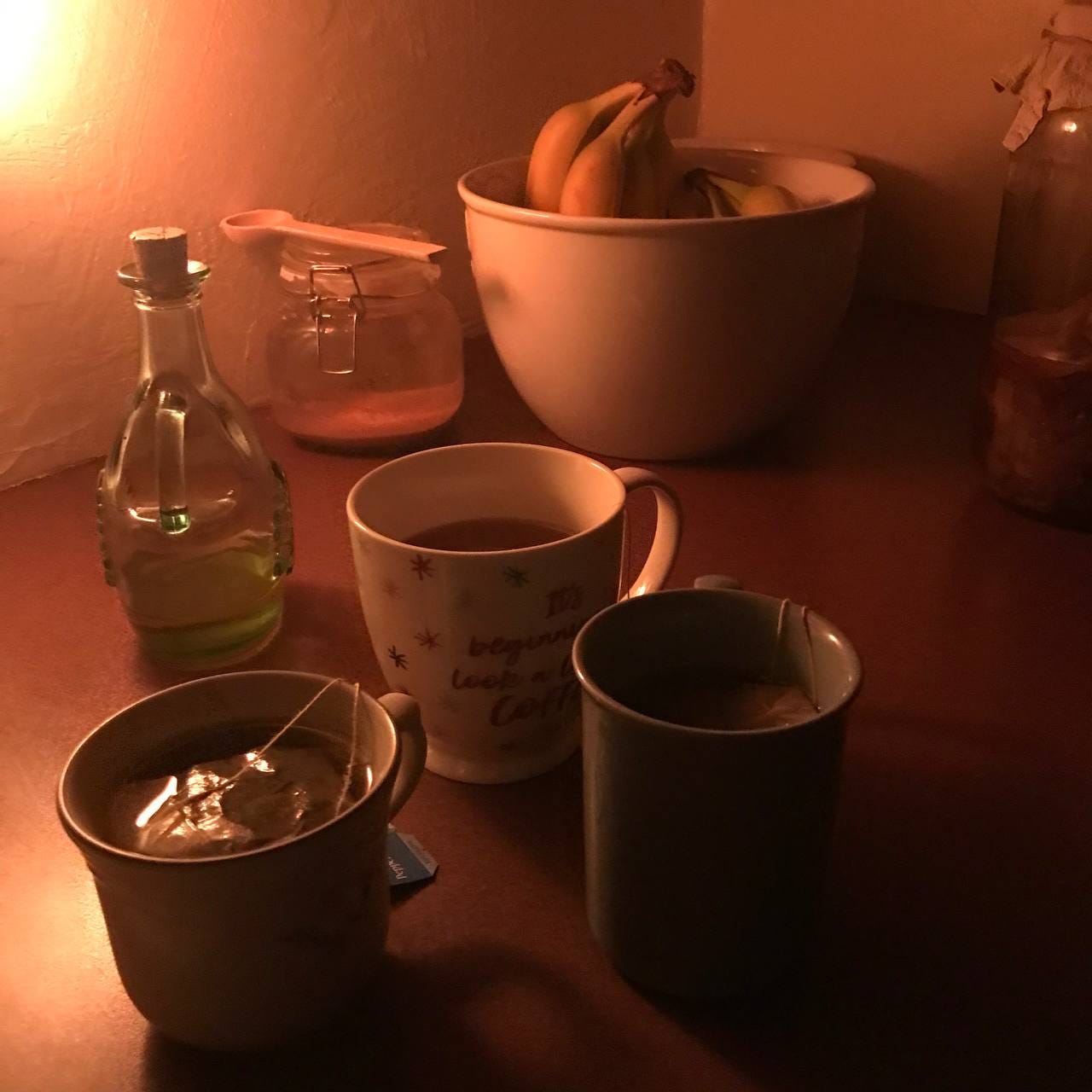
Not that we are sufficient in ourselves to claim anything as coming from us, but our sufficiency is from God, who has made us sufficient to be ministers of a new covenant, not of the letter but of the Spirit. For the letter kills, but the Spirit gives life.
– 2 Corinthians 3:5-6
We need to raise kids who are aware of issues because we took the time to talk to them about them, rather than relegating hard discussions to someone else. That means spending time with them, talking with them, explaining why we do the things we do (and why we don’t do the things we don’t). It means taking responsibility for our kids’ education – and thus their values – rather than abdicating such a vital mission to vague institutions with minimal accountability and transparency. No matter what, we are the primary teacher, caregiver, attention-giver, and disciplinarian of our kids. At the end of the day – and preferably, throughout the day – we are the ones they come to, answer to, and seek refuge in.
I admit this isn’t the easiest thing in the world. As I type this, a kid is doing a chore a few feet behind me. And if she tells me one more time that she’s done when she’s not done, she’s just tired of doing it, I might throw this copy of The Fourth Turning out the window.
(Or down the hallway. Windows are expensive and it’s nine degrees outside. And also, it might scare the chickens.)
Many of our daily conversations with our kids center around food – growing it, raising it, buying it, eating it – and other choices we make about our health; these topics were never discussed in our own childhoods rife with dye-saturated sugar cereals that were thought to be canceled out by Flintstone vitamins. So to be honest, I’m probably more excited about the “MAHA” aspect of this recent victory than anything else, because we’ve prayed about this stuff for years and wondered if anything would ever be done about them. The economy and borders and “health services” have always been on the forefront, but true healthy living, not so much.
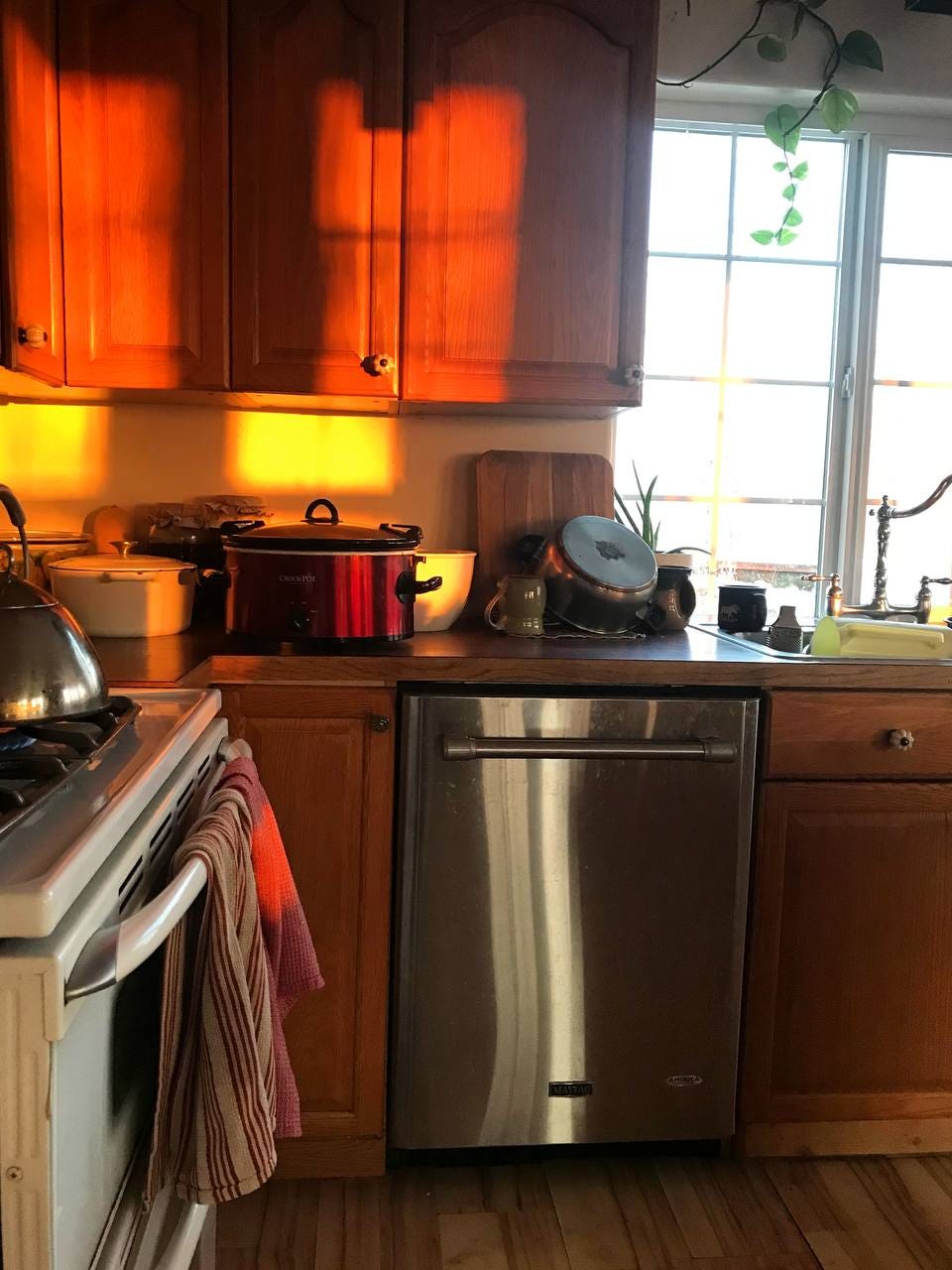
Not to lessen the importance of other spheres, but if everything else is addressed while our food supply is still tainted and healthy farming is still under attack and Big Pharma still profits from perpetuating sickness rather than healing people, we haven’t accomplished much. If our food and water are still allowed to be poisoned, are we really free at all?
Purity in food, purity in the gospel…I know, they don’t really seem related, but haven’t we seen enough corruption in both, and the debilitating effects of compromise? Impurity in any sphere does not produce a free people. It breeds slavery.
And that could be said for many facets of culture – for example, it doesn’t do any good to shift a society toward more constitutional beliefs if those who claim to be conservative are still addicted to porn and misogyny, if our civilization is still a dumpster fire of moral corruption. We need holistic solutions, not pet projects. We need Kingdom culture – because freedom is the common language, though we’ve been confused, distracted, and dissuaded by many counterfeits.
Righteousness exalts a nation, but sin is a reproach to any people.
– Proverbs 14:34
No matter how good our intentions, our message will be poisoned if we compromise to the fear of man and the obsession of ourselves. If we’re centered on ourselves, whether in shame or insecurity or self pity on the one side or in arrogance and pride and presumption on the other, it’s vanity. If we’re consumed with the image in the mirror, what people will think of us…it doesn’t matter if we’re staring at ourselves out of things to complain about or things to be proud of; either way, it’s vanity. And vanity, like fear of man (are they really that different?) is idolatry.
And that’s slavery, too. We create a multitude of problems when we read someone else’s actions and words through the lens of our own insecurities.
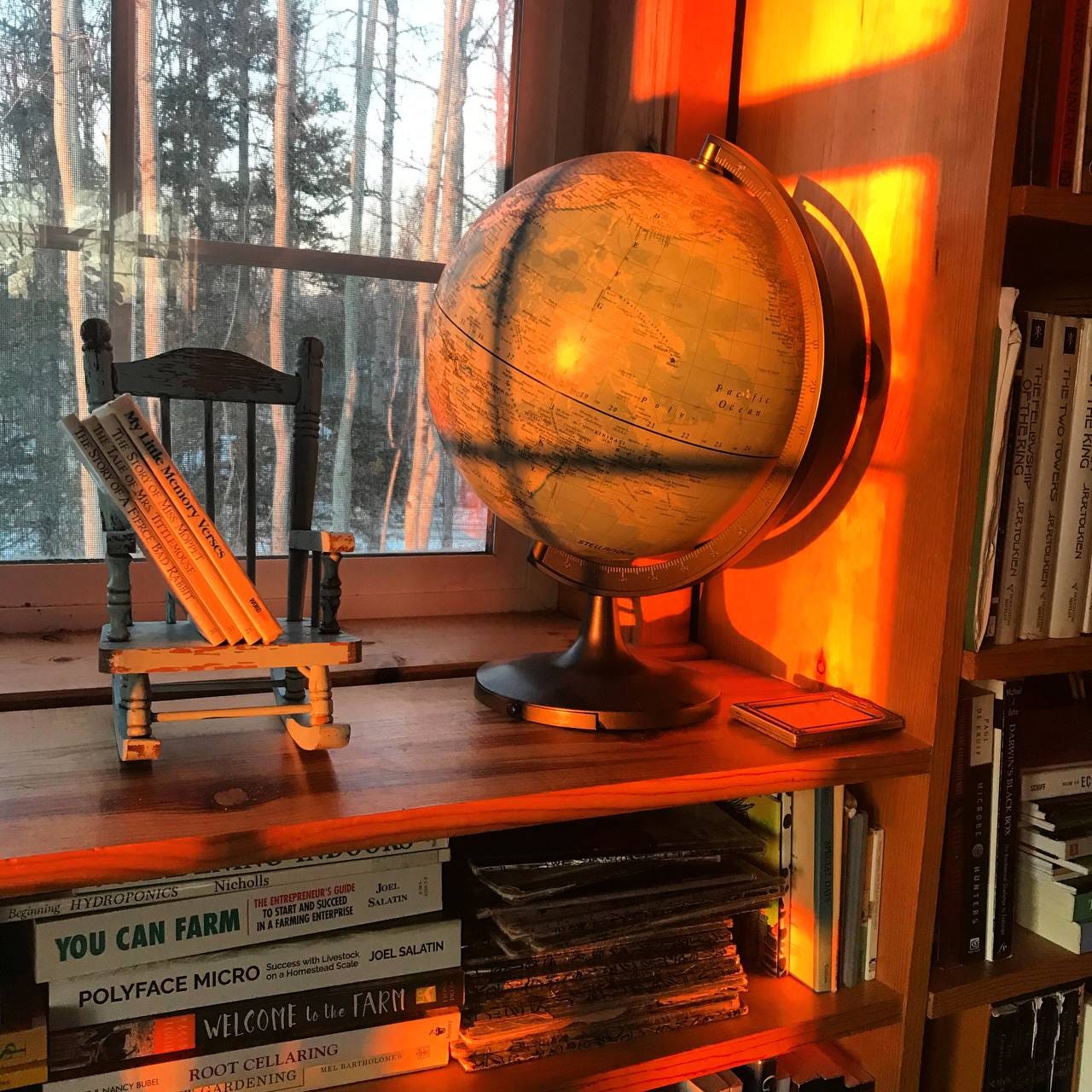
But a truly free people, unhindered by the idolatry of vanity and fear of man, speak a language of boldness and authenticity that can’t help but draw people to freedom. Insecurities are disarmed; fearful control loses its grip. We don’t need the phony attractions of red dye or smoke machines or pretend identities when Holy Spirit is given reign to move through us.
And we all, with unveiled face, beholding the glory of the Lord, are being transformed into the same image from one degree of glory to another. For this comes from the Lord who is the Spirit.
– 2 Corinthians 3:18
As I’m praying about this, I realize there’s good news in the midst of insanity: People who will film their screaming breakdowns for anyone to see are also people who, once redeemed, will not be hindered by fear of man when it comes to worshiping Jesus.
And in that sense, those of us who have been following Jesus have something to consider.
But now in Christ Jesus you who once were far off have been brought near by the blood of Christ. For he himself is our peace, who has made us both one and has broken down in his flesh the dividing wall of hostility by abolishing the law of commandments expressed in ordinances, that he might create in himself one new man in place of the two, so making peace, and might reconcile us both to God in one body through the cross, thereby killing the hostility.
And he came and preached peace to you who were far off and peace to those who were near. For through him we both have access in one Spirit to the Father.
– Ephesians 2:13-18
Our current culture looks at us and shakes their heads because we’ve known something they don’t, but we haven’t always communicated it in the best way. Freedom is not portrayed in tiny increments as we attempt (and fail) to make truth palatable to the masses by compromise. So it’s not that we need to water things down to become more relevant; it’s that we need to purify our message so it reveals freedom.
And freedom is its own draw. If we can give people a taste of it, we’ll win the next battle, too – and we’ll win it together.


